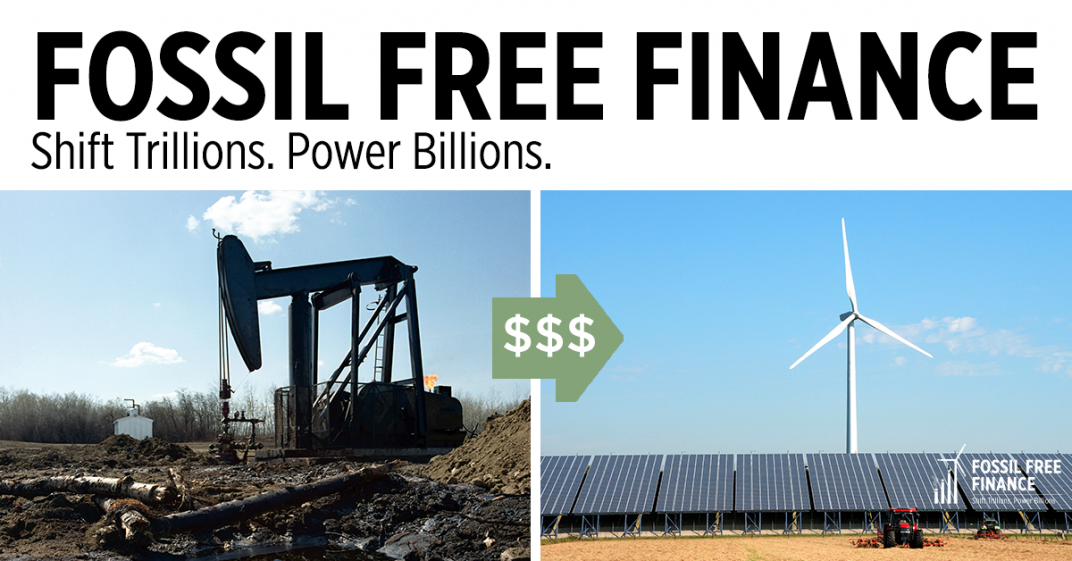We're all worried, scared, and angry about the attacks on clean energy, climate action, and public lands. And the big question that keeps coming up is: What can we do about it?
We can do a lot, of course, from contacting legislators to taking to the streets. But as we look at the actions of an presidential administration and Congress that are up to their chins in dirty-fuels money, one important thing we can do is survey our own financial affairs and see whether they're aligned with our values. For instance, are we banking and investing in ways that support clean energy and climate action or that undercut them? If the latter, why not do something about it?
The Sierra Club has decided to move away from financial institutions that finance the Dakota Access Pipeline and other high-profile fossil fuel projects. Across the nation, Sierra Club entities that have bank accounts — from the national level down to chapters, groups, and activity sections — are moving our banking and financing arrangements away from the following banking institutions listed below:
- Bank of America
- Citigroup
- Goldman Sachs
- JPMorgan Chase
- PNC Financial
- Wells Fargo
The Sierra Club SF Bay Chapter has divested from these institutions and our associated groups and activity sections are following suit. Will you join us?
To be sure, closing bank accounts is no small endeavor. But by doing so, we can demonstrate to banks that investing in egregious, destructive fossil fuel projects is an irresponsible thing to do. We can lead by example and make an impact at the same time by helping to keep fossil fuels in the ground.
Tips for Divesting:
Here are some tips you might find useful when divesting from bad banks, compiled by Susan Osofsky, Treasurer of the Inspiring Connections Outdoors section of the San Francisco Bay Chapter.
TIP 1: Moving bank accounts takes patience and perseverance. Keep in mind the larger picture and why we are doing this (see above!). Susan writes, "From past experience, I knew going into the change that it would take time and not be smooth. So I waited until I had time and mental space to take care of it."
TIP 2: When checking out local banks, ask about deals like free/no-fee checking account, how often they come up, when they expect the next one, etc. Totally worth doing.
TIP 3: Expect opening an account to take multiple days (vs. just an hour). When I opened the account, I had all of the documentation they had said that I needed. They then needed to send it to a different department. It took me 2-3 days to determine whether they would open the account. THEN they required one more piece of information.
TIP 4: Double- and triple-confirm that no other paperwork other than what's on the list is required. Even then, understand that they might require something else.
TIP 5: If you open multiple accounts on different dates, know that ALL SIGNERS need to present for each account that is opened.
TIP 6: Ask for the fee structure. What services do you need? Do they have mobile app? Online access? Fee-free? Will you be charged to download account transactions to Quicken/Quickbooks?
TIP 7: Be aware that the change may cost some money. You’ll need to pay for new checks and a new deposit stamp. Refer to Tip 1!
TIP 8: If you represent a Club entity that hasn’t yet divested, remember that the Sierra Club Treasurer's Manual provides some important details that you will need to open an account, including the Sierra Club EIN and wording required for a resolution to open a new bank account. If you run into trouble, contact Chapter Treasurer Roger Williams.
